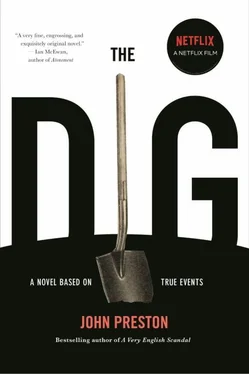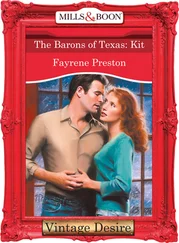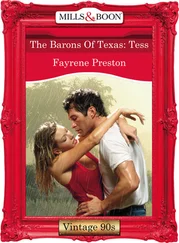“I know,” I said. “I have been.”
He gave a smile of sorts. “Now then, Brown, I hope you haven’t gone around telling anyone about anything.”
“How do you mean, Mr. Reid Moir?”
“I mean, I hope you haven’t told anyone what has been discovered here.”
“No,” I said. “No, I don’t think so.”
“Good. That’s a relief.”
“Except for my wife.”
“Oh…” he said. “Your wife? Can she be trusted to keep quiet?”
“I would have thought so. To be honest, she’s not that interested in archaeology.”
“So much the better. The last thing we want is anyone else sniffing about and trying to steal our thunder.”
I thought Reid Moir might have finished. But I was wrong. “I assume you have been keeping a field book. With everything properly detailed. Sketched, measured and so forth?”
“Of course.”
“Show it to me, please?”
I fetched the field book from the shepherd’s hut. Reid Moir started to leaf through the pages. Slowly at first and then more quickly. And then he stopped. With the book still open in his hands, he looked up.
“But, Brown, this is the most frightful mess. I mean, just look at these drawings. They’re desperately crude. And some of the entries are in pencil. Don’t you realize this could be an important document? One that reflects on everyone concerned with the excavation. Just think, man. Surely I don’t need to remind you who you are working for.”
“For Mrs. Pretty,” I said.
“What? No, no… Now don’t bandy semantics with me, Brown. You know perfectly well what I am talking about. You must make more of an effort with your presentation. I hardly need point out that we are in a very delicate position here. The last thing we want is criticism from other quarters.”
Closing the book and handing it back to me, he said, “I also notice you appear to have a child working here.”
I explained that Robert was Mrs. Pretty’s son.
“I see… Nonetheless, it creates a sloppy impression. Try to ensure he is less visible in future, will you?”
For the rest of the day I carried on smarting over Reid Moir’s comments. I was so angry I even stopped work early. When I arrived back at the cottage there was a parcel from Maynard. Inside it was a large green-bound volume and a letter explaining that this was the only information he had been able to find on the Oseberg dig. I looked at the account of the excavation. It certainly seemed thorough, and there were plenty of illustrations. Unfortunately, it was in Norwegian.
I wrote to May, saying that in future I will pack it in and go home rather than be dictated to. That evening at supper, I dare say I was a bit quieter than usual. By way of making conversation, Billy asked me if I had ever heard the story of Colonel and Mrs. Pretty’s courtship.
“No,” I told him. “I don’t believe I have.”
“It’s quite a tale,” he said. “Isn’t it, Vera?”
Vera agreed that it was quite a tale. With no further encouragement Billy was off, with Vera making appropriate noises in all the right places. Apparently Colonel Pretty had lived up in Lancashire, close to Mrs. Pretty’s family — or Miss Edith Dempster, as she was then. The Dempsters had made their money from building gasometers. Miss Edith was an only child. Her mother had died when she was young and she had stayed on at home, looking after her father. He’d been in poor health — although Billy didn’t know with what.
Every Sunday, the colonel used to see Miss Edith in church. When her father’s health permitted, he would pay her a visit. And then, on her eighteenth birthday, the colonel asked Miss Edith to marry him. However, she turned him down, saying she couldn’t possibly leave her father on his own. The following year he proposed again — also on her birthday. Once again she said no.
The colonel, though, was nothing if not perseverant. The next year he was back again. And the next. But still the same thing happened. Every year he would come — always on Miss Edith’s birthday — and every year she would turn him down. This went on for seventeen years.
“Seventeen years!” repeated Vera in a dreamy sort of way. This while looking over at me to make sure I’d taken it in.
Finally, the old boy had died. When the colonel came round next year, he made his proposal. And this time she said yes, she would marry him. But by now she was in her mid-thirties. As for the colonel, he was over fifty. Nonetheless, they married and moved down here to make a fresh start. They were here for about ten years. And then something quite unexpected happened. At the age of forty-seven, Mrs. Pretty fell pregnant.
“Forty-seven!” repeated Vera again. Except this time I nearly beat her to it. Before supper I’d been so angry I couldn’t concentrate on anything else. But now all that had disappeared. For the first time in a long while I wasn’t thinking about the ship. Apart from anything else, I’d never heard of anyone that age having a child.
At first there were no problems, Billy said. But then midway through her term Mrs. Pretty had caught typhus. Although the baby — Robert — was fine, her health had never recovered. Not fully. As for the colonel, he had died of a heart attack in the spring of 1937. Died on his birthday by an odd sort of coincidence.
None of us said too much afterwards. When I went up to bed, I found I couldn’t sleep. Not for a while anyway. I couldn’t get this picture of the colonel out of my mind. Every time I shut my eyes I saw him climbing up these stone steps to a big front door — and then going back down again. I wondered how he’d stood it. Year after year of being turned down. All the time hoping that one day his luck might change.
I woke just after four o’clock. Lying in bed, I waited for the sky to lighten. Eventually dawn broke with an angry flourish. As I walked out to the mounds, purple bands spread themselves across the horizon. The water in the estuary was all ruffled up with a mass of white-crested waves rushing this way and that.
As the morning went on, my spirits began to lift. I became convinced that the grave-robbers never reached the burial in the Sutton Hoo ship. They tried — obviously — but stopped short for some reason. I’d dug out around four feet of the flute when it just dwindled away. Underneath it, the soil was all thick and sticky again. Perhaps they were frightened of being buried, or maybe they just became disheartened.
I explained to John and Will that from now on we would be concentrating on the middle of the ship, rather than following the lines of the rivets. They didn’t see anything unusual in this. Or if they did they were too tactful to say so.
Once again, I proposed working down in layers from the surface. First moving in one direction, then coming back in the other, taking off about six inches at a time. With our coal shovels attached to the ends of long ash handles, we began shaving down the area. These ash handles came in very handy, allowing us to toss the earth right out of the trench to be barrowed off.
All day, we continued shaving away, keeping a careful watch for any changes in the color of the sand. It was while John and I were working on the section west of the center of the ship — Will was on wheelbarrow duty at the time, with Robert helping out — that I came across a darkened discoloration. It was no more than quarter of an inch wide, running crossways across the ship. First of all I took it to be the remains of another of the rib timbers. But the more I thought, the less sure I was. It could be another of the timbers, of course. On the other hand, it could be all that was left of one of the walls of the chamber itself.
Unfortunately there was no time left to do anything about it. John and Will knocked off at six and an hour or so later Robert went in for his supper. Instead of carrying on, I wanted to have another think while I decided what to do next. I’d already unfolded the tarps and was preparing to spread them out, when I turned around to see a large, unfamiliar-looking man. He was climbing down the ladder right into the belly of the ship.
Читать дальше












